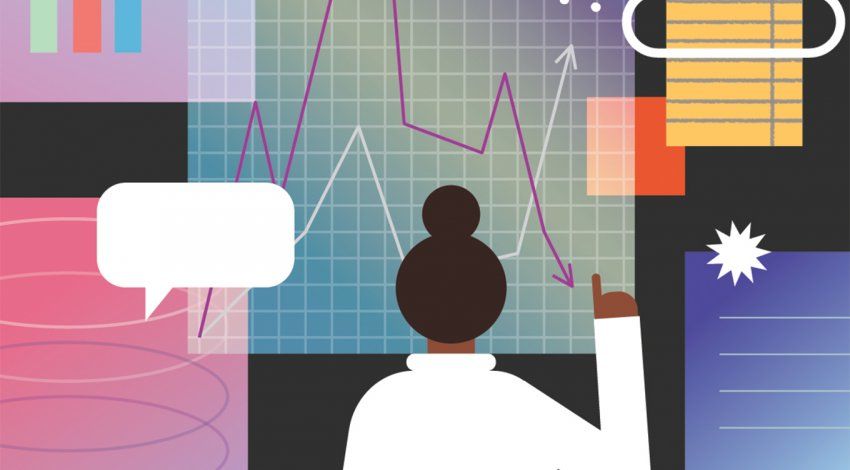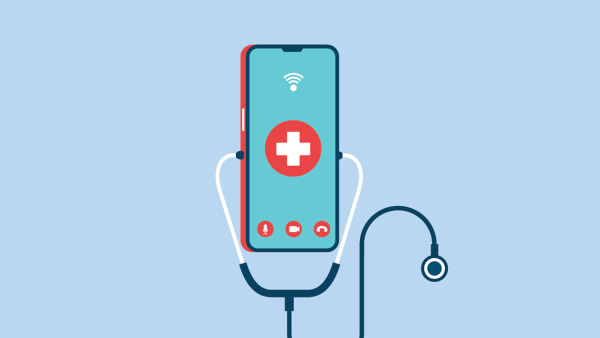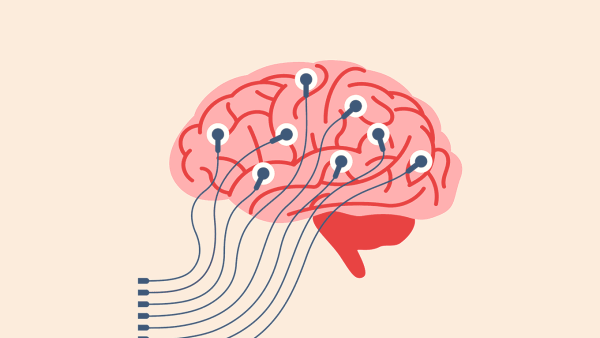
Can Technology Mend Our Broken Minds
Neuroscientist Adam Gazzaley envisions how AI and virtual reality might heal the human mind.

Illustration: Abigail Goh

Anxiety. Depression. ADHD. Dementia. The human brain is in trouble. More than half a billion people worldwide suffer from debilitating impairments in cognition. While there are many sources fracturing our cognition, we must face the reality that our brains simply have not kept pace with the rapid changes in our environment – specifically, the introduction and ubiquity of information technology.
This new environment challenges our brains and behaviors at a fundamental level. Scientists have documented the influence of information overload on attention, perception, memory, decision-making, and emotional regulation. We also see strong associations between the use of technology and rising rates of depression, anxiety, suicide, and attention deficits, especially in children.
But the same technologies contributing to the cognition crisis could help solve it.
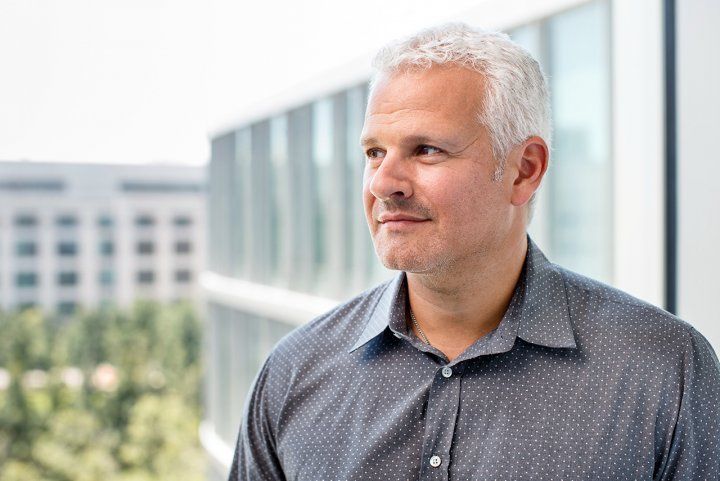
Adam Gazzaley, MD, PhD, is a professor of neurology, physiology, and psychiatry and the founder and executive director of Neuroscape at UCSF. He holds UCSF’s David Dolby Distinguished Professorship. Photo: Steve Babuljak
By leveraging sophisticated sensors to collect and interpret data about us, mobile technologies could one day help us to better and more deeply understand ourselves in the real world and in real time.
These tech-based assessments could be optimized to yield a much more nuanced perspective of our abilities, allowing us to explore the eddies and tides in cognition from childhood to our senior years, in response to life’s unpredictable joys and traumas. They could become the next generation of cognitive assessments.
Of course, this approach will need to advance carefully, protecting sensitive data and preempting its abuse. It will require that we overcome deeply rooted biases around our inclination to think of cognition as a reflection of “who we are.” (Consider how we refer to someone as being inattentive, but as having high blood pressure.)
Once we better understand our cognition, we can work to enhance it, creating powerful technological experiences that maximally harness our brain’s plasticity to boost our cognition, refine our behavior, and ultimately elevate our minds.
A technology-based, closed-loop approach could generate experiences that selectively activate brain networks and then apply constant pressure to those networks with interactive challenges. Over time, such an approach would drive the brain’s plasticity to optimize its function.
Imagine playing a video game in which your data is collected with sensor technology – performance metrics, emotional responses, body movements, brain activity – and used in real time to guide the environment you are experiencing, personalizing challenges and rewards to improve your cognition. Many laboratories and companies, including my own, are actively pursuing this vision right now.
What better use is there for AI than in enhancing HI – human intelligence?
Take all of this one step further, and think of the role that artificial intelligence (AI) and virtual reality might play. Picture yourself deeply immersed in a multisensory virtual environment in which your full-body interactivity is coordinated by an AI that knows you more deeply than any human being could, including yourself. It would pick up on subtle shifts in perception, mood, aggression, attention, and memory to strengthen your brain’s function by driving its natural plasticity. It wouldn’t control you; it would give you control over your own mind, helping prevent a slippery slide into major depression, anxiety, ADHD, or dementia.
What better use is there for AI than in enhancing HI – human intelligence? If we are creative and forward-thinking, we can achieve what may be technology’s ultimate promise: the establishment of an environment that fosters the next phase in the evolution of the human mind.
Advances in medicine have elevated the overall health of humanity to a level that far exceeds past gains. But for our species to continue to thrive in this increasingly complex world, we must turn our lens inward and look for cracks in the mirror.
When it comes to the functioning of our brains and minds, we are at a crisis point. Now is the time to take stock of what we truly value about being human, embrace it, and mend our broken minds.
This piece was adapted from an essay by Gazzaley titled “The Cognition Crisis,” which originally appeared in OneZero, a Medium publication.
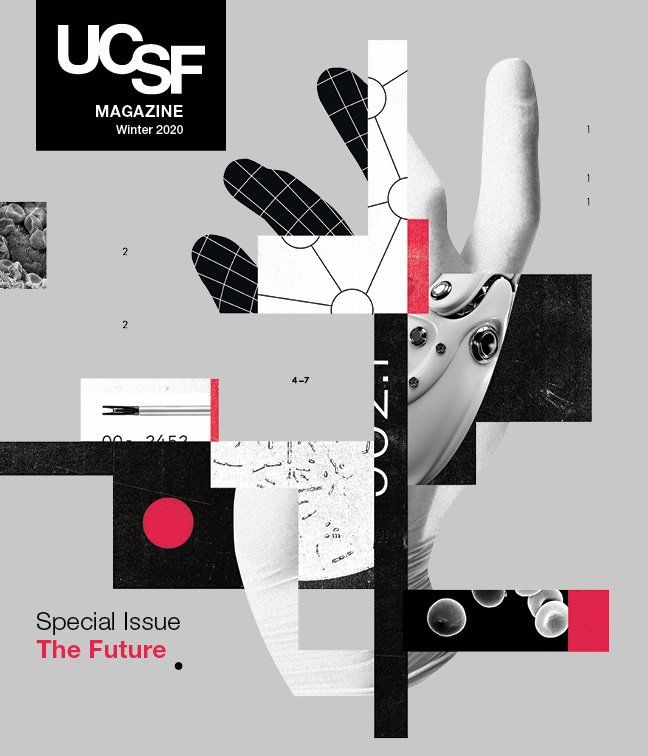
UCSF Magazine
Dive into the future of health in this special issue of UCSF Magazine.

